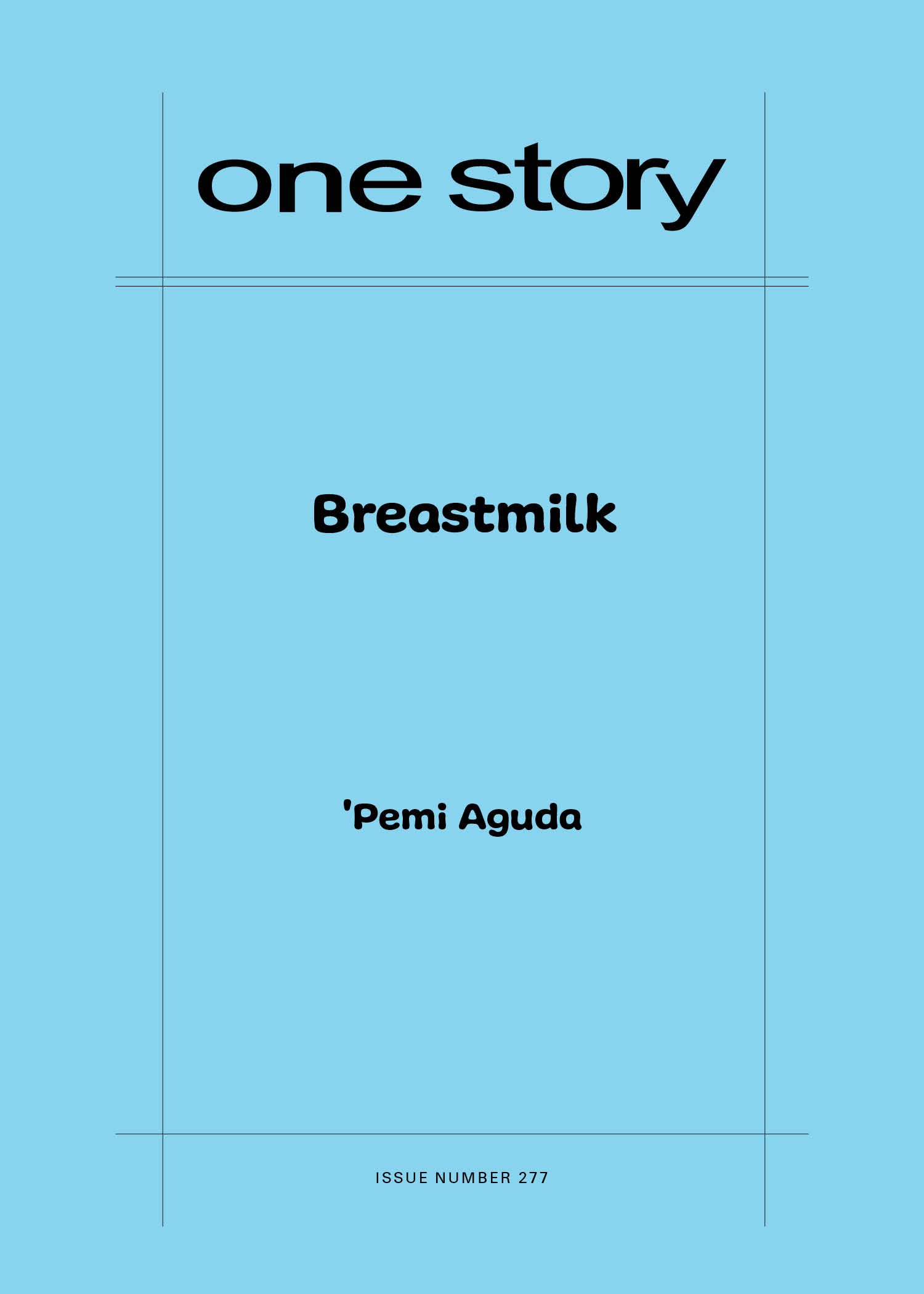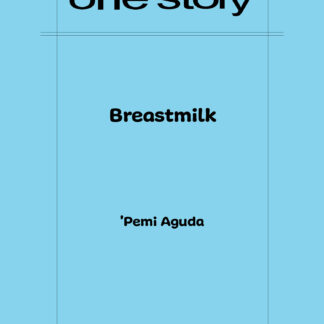
Breastmilk
$2.50
6 in stock
Excerpt
The warm, slimy creature that is my son is placed in my arms. He is crying a grating, lusty soprano. I stretch my mouth into the likeness of a smile. I don’t look down at the baby. I hold him loosely: too tight and he might squirt out of my grip and ricochet off the white walls of my hospital room.
“We’re going to cut the cord now, mummy,” one of the nurses says, and I nod. She says mummy in that patronizing tone I use when I tell my cousin’s children that they are so big and tall and grown now.
“Can I cut it?” Timi asks.
I don’t hear what they say to him, how these efficient women tell him no. But I see him step back, his head lowered like he’s been chastised. I could have told him that this is not one of those New Age hospitals that allow men to actively participate in the birth, that the father is merely a bystander here, a witness. But I didn’t. There are many things I don’t say to my husband.
’Pemi Aguda
’Pemi Aguda is from Lagos, Nigeria. She is a graduate of the Helen Zell Writers’ Program at the University of Michigan. Her novel manuscript won the 2020 Deborah Rogers Foundation Writers Award, and she is currently a 2021 fiction fellow with the Miami Book Fair. Her stories have appeared in Granta, Ploughshares, American Short Fiction Online, and Zoetrope: All-Story, among other places. Find out more at pemiaguda.com.
Will Allison on “Breastmilk”
’Pemi Aguda’s “Breastmilk” takes place in Lagos, the most populous city in Nigeria and the third largest city in Africa. As soon as Aduke’s husband, Timi, returns home from a business trip to the capital city Abuja, he confesses to committing adultery with his ex-girlfriend. But Timi is otherwise a good man—a rare Nigerian husband who eschews sexist gender roles—and Aduke promptly pardons him. They have passionate forgiveness sex, and thirty-eight weeks later, their first child, Fikayo, is born.
That’s where the trouble begins. Aduke finds herself unable to produce breastmilk, and she comes to believe the problem stems from her unresolved regret about letting Timi off the hook so easily. On top of that, Aduke fears she has betrayed the feminist values she inherited from her proud, activist mother. “Women suffer enough,” her mother says. “Don’t add man problem on top. Keep your shoes beside the door.”
I was drawn to “Breastmilk” by the raw honesty of Aduke’s voice and by the story’s vivid rendering of the early days of parenthood. Aduke’s fear is one that all parents will recognize—the fear of failing one’s newborn child. But for Aduke, that fear is compounded by her body’s refusal to comply with the demands of motherhood. It’s a fraught, heart-wrenching situation that Ms. Aguda explores with tremendous depth of feeling in pitch-perfect prose. We’re excited to be showcasing Ms. Aguda’s work in our pages, and we hope you find Aduke’s story as compelling as we did.
Q&A by Will Allison
- WA: What was the seed of this story? What was the first thing you wrote?
- PA: I listened to a lecture by the anthropologist Ruth Behar where she told a story about one of the women she met on her travels. She had lost all her babies, this woman told Behar, because there was too much rage in her breastmilk. The rage in her milk is what I trust the most in my memory of that lecture, and the image stayed with me for a long time. I know psychosomatic illnesses intimately, but to have that stated so starkly jolted me.
- WA: What was the most challenging aspect of writing this story?
- PA: In early drafts, I struggled with heavy-handedness. Every sentence was about what the story was about. Peter Ho Davies once told me that revision in fiction is about playing with the dial. Should an element be toned down or dialed up? It was a long and difficult process to find the right balance between flat-out stating how the themes were connected on the page, and withholding information. My idea of success was for the themes and revelations to organically unfold according to Aduke’s reactions to her world.
- WA: How did you decide on first person for “Breastmilk”
- PA: I wanted Aduke to work through and around her feelings, to be slippery and sly, and then confront herself. First-person seemed like the natural space for all this interiority to unfurl.
- WA: I love the story’s critique of gender roles in Nigerian society. Did you set out to examine those roles, or did that aspect of the story arise later?
- PA: Thank you! I think it would be very difficult to explore a Nigerian marriage between a woman and man without examining gender roles. They come as a package. You can’t opt out of that discourse because everyone will be having that conversation for you, anyway. No matter the private “ideal,” we live in that oppressive context.
- WA: Speaking of intentions: on the face of it, “Breastmilk” is a husband-wife story, but it ends up being an equally powerful mother-daughter story. Was that part of your original conception?
- PA: Yes! I imagine that a good chunk of new motherhood involves a comparison to whatever existing version of motherhood is available to you. I am not a mother myself, but if that were to happen, I would be deciding what I wanted to emulate or edit from my mother’s example. Also, around the time of conception of this story, I was excitedly watching the increase in conversations about feminisms on Nigerian Twitter. That the younger woman would be the one struggling with how that translates in her personal life, while her mother is so absolute and staunch—in Nigeria specifically—was an interesting dynamic to me.
- WA: What do you do when you’re not writing?
- PA: I spend all my time away from the desk looking for where I’ve dropped my phone, again!
- WA: How long did it take you to complete this story?
- PA: I wrote the first draft in early 2018 for an MFA workshop led by Eileen Pollack. I haven’t actively worked on it every moment of those years, but I have returned to it every year since then.
- WA: What are you working on now?
- PA: I’m revising the final stories for my collection and writing a novel.
- WA: What is the best bit of advice about writing you have ever received?
- PA: “Follow the magic,” Aimee Bender said. Or she might have said to follow the mystery. Either way, what I understood was: write into what interests you, follow what makes you excited, what flows mysteriously, even if it deviates from whatever plans you might have made for the work.
